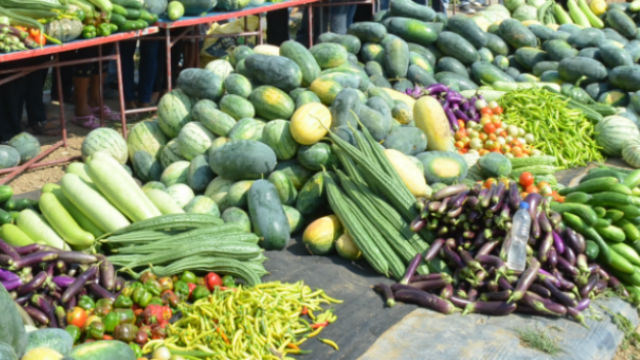TUBO, Abra – “Food Always in the Home” or FAITH, describes the Gulayan sa Barangay projects of Pantawid Pamilya parent beneficiaries from the ten (10) barangays of Tubo, Abra, a concerted effort that shows how vegetable brings life to the community through volunteerism, hard work, and collaboration.
With the aim to produce fresh and organic vegetables that would eliminate malnutrition and hunger in every household, the Gulayan sa Barangay of Pantawid Pamilya beneficiaries in the municipality was established in 2018 and was strongly supported by the barangay governments. But even before the establishment of this communal garden project, the parent beneficiaries already had their own backyard gardens and small farms as their sources of livelihood.
The spirit of volunteerism and collaboration
Before the Gulayan sa Barangay project was established, the Pantawid parent beneficiaries experienced challenges such as the absence of farm areas to cultivate as their gardens, farm inputs to be used, and the sustenance of the project.
With the interest and willingness of some parent beneficiaries who voluntarily offered a portion of their farms for the communal garden, he rest of the members also shared their own seedlings from their own backyard gardens with all of them working together once a week to cultivate their crops and vegetables.
The beneficiaries also underwent capacity building activities prior the establishment of the communal garden. An orientation on bio-intensive gardening, Gulayan sa Barangay, Clean and Green Act, vegetable and herbal planting, was conducted through the monthly Pantawid Pamilya Family Development Sessions.
In the highland barangays of Alangtin, Tubtuba, Dilong and Tabcada, the parents raised a variety of crops like cabbage, petchay, squash, Baguio beans, and others, while the lowland barangays including barangay Amtaugan, Kili, Poblacion, Supo Tiempo and Wayangan, cultivated sorts of corn, okra, eggplant, tomato, bitter gourd, petchay, string beans, and others.
Each Gulayan sa Barangay have their own cropping pattern that depends on the farm elevation but they cultivate their farm year-round. The production in highland areas is from October to March and May to September in the lowland areas.
The project later involved the municipal government of Tubo through the Office of the Municipal Agriculturist (OMAG) that helped in conducting various seminar-workshops on organic agriculture production. This was made possible through the Municipal Action Team (MAT) of the Department of Social Welfare and Development (DSWD) with a series of meetings and consultations. The Department of Agriculture (DA) was also involved in the project and provided different high-value vegetable seedlings.
Health is Click in Going Organic
Despite the challenges when they were beginning, the beneficiaries persisted as they have reached a common mission.
The Pantawid Pamilya beneficiaries ensure that the vegetables being produced are chemical-free and safe to consume. The Gulayan sa Barangay project adheres to organic farming methods by using simple rapid composting technology where they use organic-based chemicals to manage the infestation of insect pests and diseases to their crops.
According to Rizelle Caswang, the MAT Leader and Municipal Link assigned in Tubo, the Gulayan sa Barangay contributes to the healthy lifestyle of the partner beneficiaries by providing fresh, safe, affordable herbs, fruits, and vegetables.
In addition, the parent beneficiaries are able to save money by producing their own vegetables. Their neighbors also patronize their fresh vegetables. In fact, parents in some barangays are already gaining from the project. The parent groups have plans to expand their farm production and to add more kinds of vegetables in response to the growing demand of the market. The vegetables produced from the Gulayan sa Barangay are also being sold for the supplementary feeding program of DSWD.
“Dakkel ti nai-contribute na daytoy Gulayan sa Barangay iti pagtaengan ken komunidad me ta isu ti pagap gapuan ti pang soposop nga kan kanen me iti inaldaw aldaw. Dagiti mula me pi ket sigurado nga safe nga kanen ta saan nga ma is ispray an ti chemicals. Nu adda sobra nga harvest ijay gulayan me nga Pantawid, apan me ilako ijay market ket isupay nga income me. Nu mamingsan met ket isu ti ilak lako me nu supplementary feeding ti DSWD (The communal garden is a big help to our household and to our community because it supplements our daily food. Our harvests are surely safe because we do not spray chemicals. If there are excess harvest from our Pantawid garden, we sell it in the market for our income. Sometimes, we sell it too during supplementary feeding of DSWD),” Divina Pingian, parent beneficiary from Tabcada, Tubo said.
The Gulayan is not just a Garden
The Gulayan sa Barangay is not just a simple garden because it brings unity and fosters responsibility among the Pantawid Pamilya beneficiaries, community, and the barangay government. Through the project, the community learns the importance of eating healthy foods.
Moreover, the project aids in building social ties, sharing skills and experience, learning about nature, and taking proactive measures to improve their well-being as well as their economic sustainability. The parent beneficiaries remained determined to continue their communal garden hoping that hunger and food insecurity will be eliminated in the long run and somehow reduce the impact of poverty.
Meanwhile, the OMAG of Tubo with DA and DSWD supports the project through a Search for Best Gulayan sa Barangay with health and nutrition as one of the main criteria. The partner agencies scheduled field validation and or monitoring of the Gulayan sa Barangay every semester for 2019.
The Best Gulayan sa Barangay will be recognized during the town’s Begnas Festival slated in the third week of December this year.
Indeed, gulay ay buhay (vegetable is life) in Tubo, Abra. The communal garden of each barangay in the municipality does not only benefit the Pantawid Pamilya beneficiaries but all the members of the community. By MARLO C. ABYADO, JR., with reports from RIZELLE M. CASWANG














